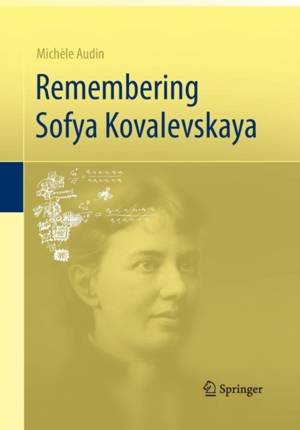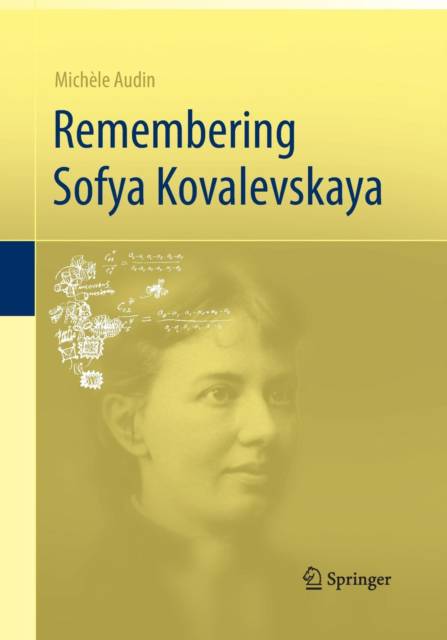
- Afhalen na 1 uur in een winkel met voorraad
- Gratis thuislevering in België vanaf € 30
- Ruim aanbod met 7 miljoen producten
- Afhalen na 1 uur in een winkel met voorraad
- Gratis thuislevering in België vanaf € 30
- Ruim aanbod met 7 miljoen producten
Zoeken
Omschrijving
Sofia Kovalevskaya was a brilliant and determined young Russian woman of the 19th century who wanted to become a mathematician and who succeeded, in often difficult circumstances, in becoming arguably the first woman to have a professional university career in the way we understand it today. This memoir, written by a mathematician who specialises in symplectic geometry and integrable systems, is a personal exploration of the life, the writings and the mathematical achievements of a remarkable woman. It emphasises the originality of Kovalevskaya's work and assesses her legacy and reputation as a mathematician and scientist. Her ideas are explained in a way that is accessible to a general audience, with diagrams, marginal notes and commentary to help explain the mathematical concepts and provide context. This fascinating book, which also examines Kovalevskaya's love of literature, will be of interest to historians looking for a treatment of the mathematics, and those doing feminist or gender studies.
Specificaties
Betrokkenen
- Auteur(s):
- Uitgeverij:
Inhoud
- Aantal bladzijden:
- 284
- Taal:
- Engels
Eigenschappen
- Productcode (EAN):
- 9781447169352
- Verschijningsdatum:
- 23/08/2016
- Uitvoering:
- Paperback
- Formaat:
- Trade paperback (VS)
- Afmetingen:
- 178 mm x 254 mm
- Gewicht:
- 517 g

Alleen bij Standaard Boekhandel
+ 83 punten op je klantenkaart van Standaard Boekhandel
Beoordelingen
We publiceren alleen reviews die voldoen aan de voorwaarden voor reviews. Bekijk onze voorwaarden voor reviews.











